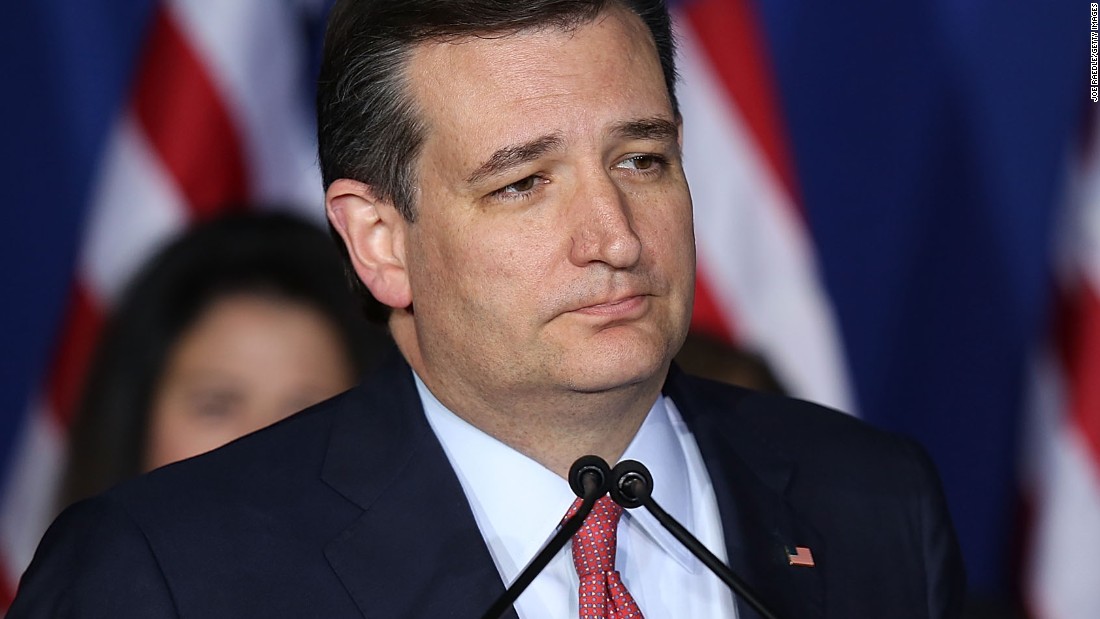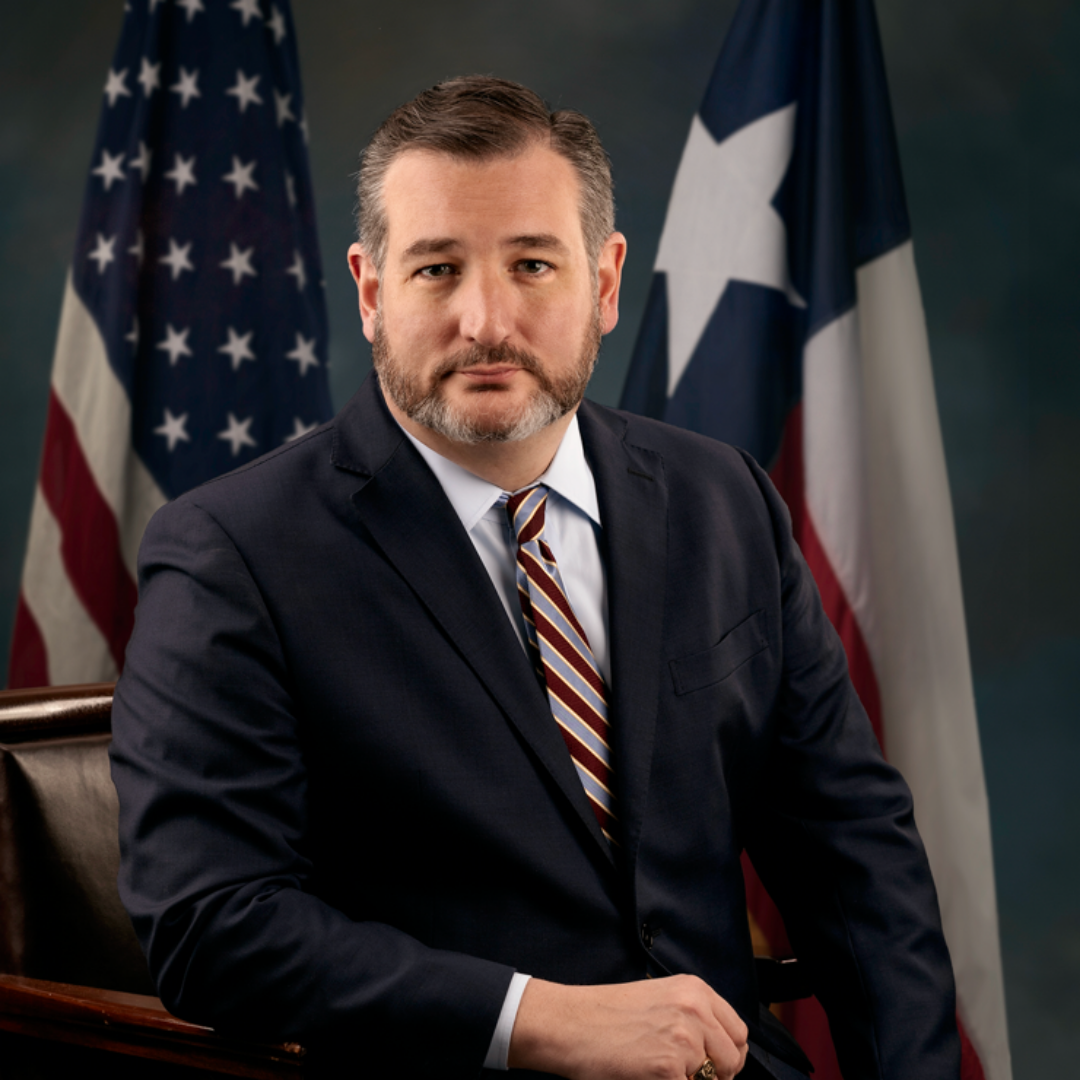Ted Cruz is one of the most prominent and polarizing figures in modern American politics. As a U.S. Senator from Texas, his career has been marked by passionate advocacy, sharp rhetoric, and a steadfast commitment to conservative principles. His influence on national and international policy discussions has made him a household name. Whether you agree or disagree with his policies, there's no denying the impact he has had on the political landscape.
From his early days as a constitutional lawyer to his rise in the Senate, Ted Cruz has consistently positioned himself as a champion of individual rights and limited government. His outspoken nature and unapologetic stance on controversial issues have earned him both admiration and criticism. This article delves into his life, career, and the controversies that have surrounded him, providing a comprehensive look at one of the most talked-about politicians in the United States.
As we explore Ted Cruz's journey, we'll uncover the key moments that have shaped his career, his positions on major issues, and the legacy he continues to build. Whether you're a political enthusiast or simply curious about the man behind the headlines, this article aims to provide a balanced and informed perspective on Ted Cruz's contributions to American politics.
Read also:Sophie Hawleyweld The Rising Star In The Spotlight
Table of Contents
- Biography of Ted Cruz
- Early Life and Education
- Political Career
- Key Issues and Stances
- Controversies and Criticisms
- Impact on American Politics
- Personal Life
- Future Plans and Aspirations
- Analysis of Ted Cruz's Leadership Style
- Conclusion and Call to Action
Biography of Ted Cruz
Early Life and Education
Ted Cruz was born Rafael Edward Cruz on December 22, 1970, in Calgary, Alberta, Canada. His parents, Rafael Bienvenido Cruz and Eleanor Wilson Cruz, played a significant role in shaping his early values and political beliefs. His father, an oil industry consultant, and his mother, a homemaker turned energy consultant, instilled in him a strong work ethic and a passion for social justice.
He attended Second Baptist School in Houston, Texas, where he excelled academically. Cruz went on to study at Princeton University, where he graduated magna cum laude with a Bachelor of Arts in Public Policy in 1992. He later attended Harvard Law School, earning his Juris Doctor in 1995. During his time at Harvard, Cruz was known for his sharp legal mind and his ability to argue complex cases effectively.
Key Achievements in Early Career
Ted Cruz's early career laid the foundation for his future political aspirations. After graduating from Harvard, he clerked for Judge David S. Tatel of the U.S. Court of Appeals for the D.C. Circuit and later for Justice William Rehnquist of the U.S. Supreme Court. His experience in the legal field equipped him with the skills necessary to navigate the complexities of American law and governance.
Before entering politics, Cruz worked as a constitutional lawyer, advocating for individual rights and limited government. His work on landmark cases, such as the Bush v. Gore case during the 2000 presidential election, further solidified his reputation as a formidable legal mind.
Political Career
Rise to Prominence
Ted Cruz's political career began in earnest when he was elected as the U.S. Senator from Texas in 2012. Running as a member of the Republican Party, Cruz positioned himself as a staunch advocate for conservative values and limited government. His victory in a deeply red state like Texas marked the beginning of a new era in American politics, where populism and grassroots movements gained significant traction.
As a senator, Cruz has been a vocal critic of the Affordable Care Act (Obamacare), government overreach, and high taxes. He has consistently pushed for policies that align with his conservative ideology, often finding himself at odds with members of his own party and the opposition.
Read also:Thaliacutea Sodi A Journey Through The Life Of A Global Icon
Key Legislative Achievements
Throughout his tenure in the Senate, Ted Cruz has been involved in several key legislative efforts. Some of his notable achievements include:
- Advocating for the repeal of the Affordable Care Act.
- Pushing for stricter border security measures.
- Supporting tax reform initiatives aimed at reducing the tax burden on Americans.
- Championing the protection of Second Amendment rights.
His efforts in these areas have resonated with many conservative voters, solidifying his status as a leading voice in the Republican Party.
Key Issues and Stances
Healthcare Policy
Ted Cruz has been a vocal opponent of the Affordable Care Act, arguing that it represents government overreach and a threat to individual freedoms. He has proposed alternative healthcare solutions that focus on reducing costs and increasing competition in the healthcare market. Cruz's stance on healthcare has been a central theme in his political campaigns, appealing to voters who prioritize limited government involvement in personal matters.
Immigration Reform
On the issue of immigration, Ted Cruz has taken a hardline stance, advocating for stronger border security measures and stricter enforcement of existing immigration laws. He has criticized amnesty proposals, arguing that they undermine the rule of law and create incentives for illegal immigration. Cruz's position on immigration has been a contentious topic, sparking debates both within his party and across the political spectrum.
Controversies and Criticisms
Political Tactics
Ted Cruz's political tactics have often been the subject of controversy. Critics accuse him of using divisive rhetoric and polarizing tactics to advance his agenda. His willingness to engage in political brinkmanship, such as threatening government shutdowns over funding for Obamacare, has drawn both praise and criticism from observers.
Media Representation
Cruz's interactions with the media have also been a point of contention. He has been known to criticize mainstream media outlets, accusing them of bias against conservative viewpoints. While some view this as a necessary defense of free speech, others see it as an attempt to discredit legitimate criticism.
Impact on American Politics
Shaping the Republican Party
Ted Cruz has played a significant role in shaping the modern Republican Party. His emphasis on conservative principles and limited government has influenced party platforms and policy discussions. Cruz's rise to prominence coincided with a broader shift toward populism within the party, reflecting a growing dissatisfaction with establishment politics.
Influence on National Policy
Through his work in the Senate, Ted Cruz has had a measurable impact on national policy. His efforts to reform healthcare, strengthen border security, and reduce taxes have contributed to broader legislative debates. While not all of his proposals have been enacted, his influence on the policy-making process is undeniable.
Personal Life
Family and Hobbies
Ted Cruz is married to Heidi Nelson, a former investment banker, and they have two daughters. Despite his busy political schedule, Cruz prioritizes spending time with his family, often sharing glimpses of their life on social media. His hobbies include reading, writing, and engaging in outdoor activities with his family.
| Full Name | Rafael Edward Cruz |
|---|---|
| Date of Birth | December 22, 1970 |
| Place of Birth | Calgary, Alberta, Canada |
| Spouse | Heidi Nelson |
| Children | Two daughters |
| Education | Princeton University (B.A.), Harvard Law School (J.D.) |
Future Plans and Aspirations
Presidential Ambitions
Ted Cruz has not ruled out the possibility of running for higher office in the future. His previous presidential campaign in 2016 demonstrated his ambition and organizational capabilities. While he faces challenges within his own party, Cruz remains a formidable contender for future leadership roles.
Policy Priorities
Looking ahead, Ted Cruz has expressed a desire to continue advocating for policies that align with his conservative principles. He remains committed to healthcare reform, immigration control, and tax cuts, among other issues. His future plans will likely focus on advancing these priorities while maintaining his position as a leading voice in the Republican Party.
Analysis of Ted Cruz's Leadership Style
Strengths and Weaknesses
Ted Cruz's leadership style is characterized by a strong commitment to his principles and an unrelenting drive to achieve his goals. His ability to articulate complex issues in a way that resonates with voters is one of his greatest strengths. However, his polarizing tactics and confrontational approach have also drawn criticism, limiting his ability to build consensus across party lines.
Legacy and Influence
As Ted Cruz continues to shape the political landscape, his legacy will be defined by his contributions to the conservative movement and his impact on national policy. While opinions about his leadership style may vary, there is no denying his influence on American politics and the issues that define our time.
Conclusion and Call to Action
In conclusion, Ted Cruz is a complex and influential figure in American politics. His career has been marked by a commitment to conservative principles, a willingness to challenge the status quo, and a passion for limited government. Whether you agree with his policies or not, there is no denying the impact he has had on the political discourse in the United States.
We invite you to share your thoughts and opinions in the comments section below. Engaging in constructive dialogue is essential to understanding the diverse perspectives that shape our world. For more insightful articles and updates on American politics, be sure to explore our other content and stay informed about the issues that matter most to you.
References:
- Biography of Ted Cruz
- Ted Cruz - Official Congressional Profile
- Ted Cruz and the Future of Conservatism


